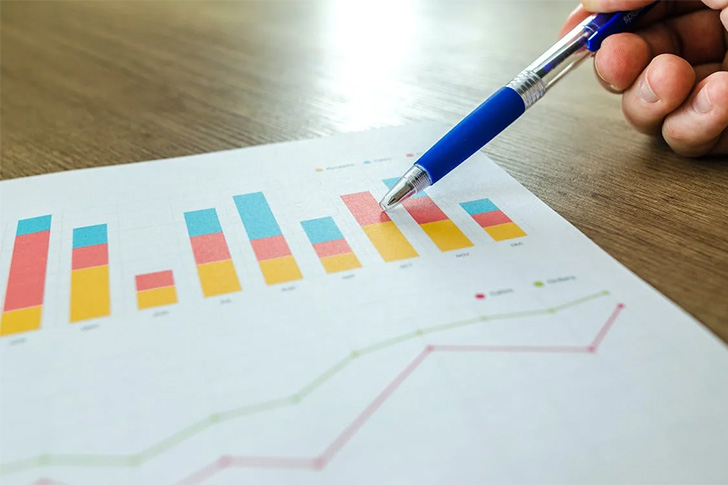Data analysis is one of the most sought-after skills for aspiring professionals today. To become a successful data analyst, there are many technical and soft skills needed. And even if you don’t have a degree in this field, you still can learn these skills and take steps to make it your career. In this blog post, we will discuss what data analysis is and the necessary skills, outline the key steps to becoming a data analyst without a degree, explore the resources available for learning, and deliver some of the many benefits a career in data analysis can bring.
What Is Data Analysis
Data analysis is the process of gathering, organizing, and interpreting large amounts of information. This information is used to identify trends and patterns in the data and make predictions that may be helpful for making decisions.
Types of Data Analysis
Data analysis can be classified into two main categories – descriptive analytics and predictive analytics. Descriptive analytics is used to get an overview of past performance or results, while predictive analytics is used to help predict future trends or behaviors.
Key Skills Needed to Become a Data Analyst

Karolina Grabowska / Pexels
Technical Skills
To become a successful data analyst, it is important to possess technical skills such as mathematics, problem-solving, logical reasoning, programming languages, statistical software packages, data visualization tools, and software engineering principles.
Soft Skills
In addition to possessing technical skills in the field of data analysis, it is also important for aspiring data analysts to have strong communication and interpersonal skills as well as creative thinking abilities.
Steps to Become a Data Analyst Without a Degree

Lukas / Pexels
Learn the Basics of Data Analysis
The first step towards becoming a successful data analyst is building on the basics of data analysis, such as understanding statistics, probability theory, and machine learning algorithms. You should also learn how to use modern tools and techniques like Python or R programming languages, as well as familiarize yourself with specific statistical software packages and get acquainted with databases like SQL or Apache Spark.
Gain Experience
Experience is key when it comes to becoming a successful data analyst without having a degree in the field. There are many different ways you can gain experience, such as taking on freelance projects or volunteer opportunities where you can hone your skill set and build on your portfolio.
Become Certified
There are several certification programs out there that can help demonstrate your competency in the field of data analysis, such as Microsoft Certified Professional (MCP), Microsoft Certified Solutions Expert (MCSE), Cloudera Certified Professional (CCP), etc. Taking these courses will not only help prove your knowledge, but they can also provide you access to higher-paying jobs in the industry.
Resources Available to Data Analysts

Markus Winkler / Pexels
Online Courses
There are various online courses available that can help beginner-level aspirants get acquainted with all aspects of data analytics, such as Introduction to Programming for Data Science offered by Coursera or Practical Machine Learning by Udemy, etc. Free online learning platforms like edX or Khan Academy also offer great resources suitable for individuals with limited funds who wish to gain knowledge about this domain without having to invest financially in it.
Training Resources
Apart from online courses, there are many excellent books available related specifically to the field of data analysis, such as Think Stats by Allen B Downeyor Python for Data Analysis by Wes McKinney, etc. Other options include attending conferences and webinars hosted by experts in the field or getting mentored by experienced professionals who have been working in this field for years now.
Community Groups
Finally, joining local communities like Data Science Salon or user-driven forums like Stack Overflow or Reddit are great ways for aspiring professionals to interact with other peers in their field and stay up-to-date with latest trends and technologies being used in this domain.
Benefits of Becoming a Data Analyst

Karolina Grabowska / Pexels
Financial Benefits
The salary potential of a data analyst varies depending on their level of experience and expertise, but they typically receive an average salary ranging from $70 000- $100 000 per year depending on their qualifications and job roles they specialize in, such as database engineer or business intelligence analyst, etc. Additionally, becoming certified often leads to additional monetary benefits too when applying for higher-level positions within companies across different sectors like finance or marketing, etc.
Job Security
With ever-increasing reliance upon technology for making important business decisions spanning across different departments being analyzed by data professionals, job security within this field is often considered very high compared to other industries where employment outlook may be lower due to automation replacing certain job roles.
Professional Growth
Becoming a successful data analyst can open up new professional growth opportunities thanks to its varied applicability across different industries such as healthcare, financial services, or retail. As incomes increase over time due to other added benefits (such as bonuses, stock options, etc.), individuals working in this domain may have the flexibility to work remotely without keeping themselves confined to one specific geographical location within their country or even work overseas depending upon their experience level.
show more






















